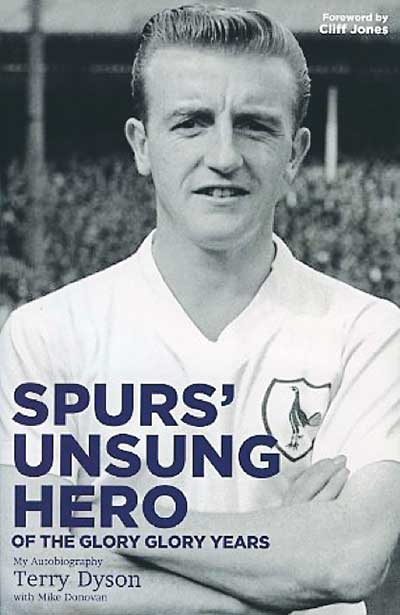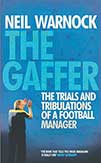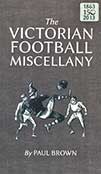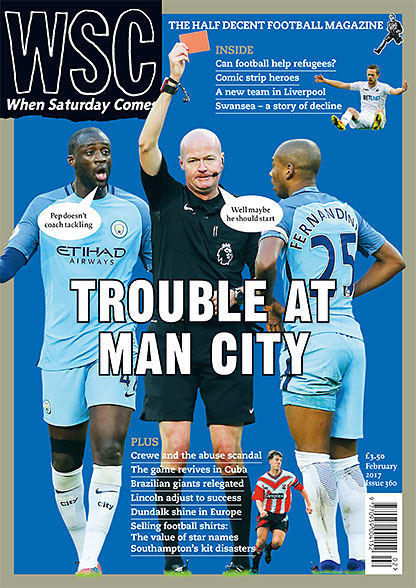Search: ' Scarborough'
Stories
Accrington relegated, Luton champions and chaos at Northampton – what WSC contributors got right and wrong about the previous season
3 August ~ “With a takeover saga looming, a half-finished stand and rumours rife about matters financial, it isn’t the pre-season preparation Cobblers fans would have hoped for,” wrote Northampton Town fan Mark Pacan ahead of the 2015-16 League Two season, before predicting: “Best case scenario, play-offs. Worst case scenario, relegation and oblivion.”
 My autobiography
My autobiography
by Terry Dyson with
Mike Donovan
Pitch Publishing, £18.99
Reviewed by Alan Fisher
From WSC 342 August 2015
“The game is about glory,” proclaim the hoardings on all sides of White Hart Lane. Before it was plundered by the marketing department, Terry Dyson was one of the creators of Tottenham Hotspur’s proud heritage. In 1961 Spurs became the first team since 1897 to win the Double, with 11 straight league wins at the start of the season. Two years later they were the first British team to win a European trophy, the Cup-Winners Cup. Dyson is one of the lesser-known stars of a team managed by Bill Nicholson that included Danny Blanchflower, the indomitable Dave Mackay, Cliff Jones, Bobby Smith and perhaps the best of them all, “the Ghost” John White (who was killed by lightning on a golf course in 1964).
Born in Scarborough where his father was a well-known but impoverished jockey, Dyson was spotted in 1954 playing for the army during his national service. Over the next decade he made 244 appearances for Spurs as a hard-working little left-winger, scoring 68 goals including two in his finest match, the 5-1 Cup-Winners Cup final victory.
Much of the book is understandably taken up with the Double season, rich with insider detail and anecdotes on a game-by-game basis that will fascinate Spurs fans, while the less committed reader can’t help but be swept along by Dyson’s enthusiasm and growing sense of destiny. However, the abiding impression is one of humility, a simple delight in playing good football with team-mates he liked, admired and respected. His description of soft-voiced conversation and calm satisfaction in the Wembley dressing room after the Cup win to seal the Double is typical and evocative, striking for its lack of brazen celebration even though they were perfectly entitled to let go. Nicholson was genuinely upset that the team had let themselves down because their performance was below their best.
Dyson played in a very different era, being paid £40 in weekly wages even after the season’s other momentous event, the abolition of the maximum wage. He lived locally in digs with the same family for ten years and drank after matches with the fans in the Bell and Hare pub next to the ground. He bemoans the separation between supporter and player that is the norm today. However the most telling sign of different times is that the editor felt the rules of Dyson’s favourite playground game, conkers, had to be explained in detail to an apparently bewildered readership.
Yet in many ways this was an entirely modern team. The cheerful Dyson recounts how he and his team-mates talked football incessantly, supporting each other on and off the pitch. Contrast Gary Neville’s recent criticism of the lack of on-field intelligence and problem-solving in the English game.
Later in his career Dyson played for Fulham and Colchester, then managed in non-League and coached in local schools. Spurs fans of all vintages will revel in this account of a man who was part of a team contemporaries called the finest of all time yet who remains humble. Now a sprightly 80 the stories he is able to tell allow Terry Dyson to step into the limelight.
 The trials and tribulations of a football manager
The trials and tribulations of a football manager
by Neil Warnock
Headline £16.99
Reviewed by Roger Titford
From WSC 323 January 2014
Outside Yorkshire people would call Neil Warnock’s bluntness “refreshing”, but I had enough relatives from the county to realise he is just talking normally, apart from the strange absence of any swearing. Warnock takes us well beyond the angry and abusive figure he was on the touchline to give perhaps one of the last accounts of being a manager from an English, old-school perspective, stretching across all the divisions.
He is prepared to name those he does not like, bears a few grievances (and why not after 33 years as a manager) and offers a few telling insights into the managerial mind. Some clubs have apparently switched the position of the home and away dug-outs, the better to berate the linesman running the right wing – no stone left unturned in the modern game.
Warnock has aired his views by means of a weekly column in the Independent (which I have not read and therefore cannot tell how much, if any, is rehashed). For The Gaffer he has employed the Independent‘s Glenn Moore to bring some polish to his thoughts. The pleasing result is an unusual structure, more reminiscent of fiction than biography. At times it reads like the musings of an after-dinner speaker reviewing his whole career through the prism of his current and recent jobs. The benefit to the well-informed fan is that you do not know what is going to come next, as you would with a more chronological approach.
The disadvantage, of course, is the reader might not get what they expect. I would have preferred more on his time at Bramall Lane. For me, and for the football world in general I think, this was the apotheosis of Warnock: ardent supporter turned successful manager and tragically undone in 2007 by managerial “friends” Alex Ferguson and Rafa Benítez, who picked weakened teams against Sheffield United’s relegation rivals, and the dodgy Carlos Tévez deal.
Instead the focus is very much on later years with unstinting praise for Simon Jordan, once chairman of Crystal Palace, and the club’s fans. This is followed by a detailed account of life at Loftus Road under the auspices of various uncontrollable international business moguls and in charge of difficult talents such as Joey Barton and Adel Taarabt. The job did not get any easier with the Anton Ferdinand and John Terry affair, which gets a close and dispassionate examination.
Warnock conveys a very strong sense of the manager’s role being invaded and undermined by non-football issues inconceivable when he started at Scarborough and Notts County, hence the sub-title of this book. Nevertheless he remains hooked on the thrills and changing fortunes of football management. After QPR he took on Leeds, Ken Bates and a foreign takeover and the final few pages read more like another job application than a farewell to a boisterous 33 years of hurt.
 by Paul Brown
by Paul Brown
Goal-Post, £7.99
Reviewed by Terry Staunton
From WSC 318 August 2013
Pre-empting the terrace chants of several future generations, the 1878 FA Cup final referee was, indeed, a Bastard. Racehorse owner and solicitor Segar Bastard was the man with the whistle, although just a few years earlier he might have been waving a handkerchief to signal foul play, before a bright spark hit on the idea that something which made a noise might more easily attract players’ attention.
It sounds like an obvious tweaking of how the game should be played, along with the 1871 ruling that introduced dedicated goalkeepers – instead of anyone on the pitch being allowed to take a “fair catch” – although it would be another 40 years before keepers’ powers were reined in to prevent them from picking the ball up anywhere in their own half. Likewise, the Victorian equivalent of goal-line technology was the 1870s introduction of solid crossbars, thus ending the confusion and controversy caused by balls striking the strip of tape tied between the tops of posts.
Paul Brown’s miscellany doesn’t attempt a straight chronology of how the game developed while Queen Victoria was on the throne, and that is to the book’s advantage. The time-hopping scattergun collection of pivotal changes to the laws governing play is liberally peppered with tremendously trivial tales of Zulu warriors playing exhibition matches in Scarborough, newspaper reports of therapeutic games played between inmates of lunatic asylums and revelations about the health-conscious 1889 Sunderland team containing seven non-smokers.
The author’s visits to press archives come up trumps time and again, recounting St Patrick’s Day riots at an 1840 match in Edinburgh (“a reinforcement of the police soon dispersed the cowardly assailants; four of the ringleaders, we are happy to say, are in custody”) or Derby Council’s decision to ban the game outright in 1846, declaring it “a vestige of a semi-barbarous age”. And who wouldn’t have wanted to witness the game played in Windsor, when both teams had their ankles tied 15 inches apart and the winners were presented with a cheese?
Among these myriad curios, Brown offers potted biographies of pioneering teams, players and personalities. Modern-day fans of Notts County may already be well versed in the club’s history but it’s intriguing for the rest of us to learn that antagonisms with their Forest neighbours stretch back to the very first derby fixture, when the latter team sneakily fielded 17 players. Rightful space is afforded to such movers and shakers as first FA secretary Ebenezer Cobb Morley, aristocratic Arthur Kinnaird (a 19th-century David Beckham, suggests Brown) and poet Nevill “Nuts” Cobbold, regarded as the forefather of dribbling.
The rules may have varied from town to town, even factory to factory, before the FA sought workable unification, while outbreaks of violence meant football habitually filled as many column inches of the crime reports as it did the sports pages, but the colourful transitions the game went through to become the beast we know today are endlessly fascinating. This book doesn’t set out to tell the story in dense, sober detail, opting instead to present itself as a hugely entertaining exercise in eavesdropping.
